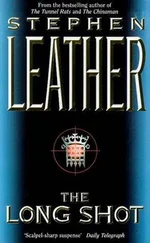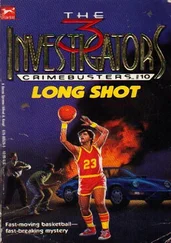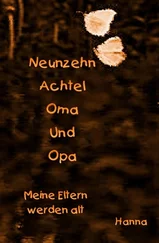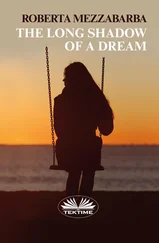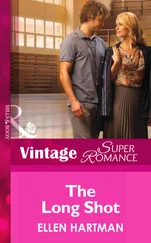“Maybe that could be my new tagline. ‘ Haverhurst Events. I do a great job. Despite the cow .’”
Jen hung up with her sister and fell into bed with a smile, her hand stretching to the empty pillow beside her.
* * *
Three days later, Jen was carrying a backpack filled with her stuff out of the office building where she’d worked under Tim Bauer for six years. It wasn’t much, in the grand scheme of things. She hadn’t brought much of herself in.
But that would change. She was going to put her heart and soul into her new venture, and each and every client would be able to see and feel it.
Her phone rang. It did that decidedly less these days, so when it happened it never failed to make her jump and then rush to answer, wondering who it could be. Hoping against hope that it would be a certain someone.
The number on the screen was unrecognizable, but it was an area code she knew to be upstate New York.
“This is Jen Haverhurst.”
“Jen, hi, my name is Ann Wagner. I’m director of the Finger Lakes Tourism Bureau. I’m looking for assistance in setting up incentive packages in my area. I’m told this is an area of expertise for you?”
Suddenly Jen felt light as air, her sandals barely touching the concrete. “It is, and I’d love to talk to you about it.”
Ann exhaled. “Fantastic!”
“May I ask how you got my name? My business cards aren’t even printed yet.”
“Oh. Sue McCurdy told me about you.”
Jen stopped walking, right there in the middle of the crowded New York sidewalk. Someone crashed into her from the back and glared at her, and she shuffled off to stand in front of the window of a Greek restaurant. “Wait. Sue McCurdy. As in Mayor Sue?”
“I can’t believe she wants people to call her that, but that’s Sue for you.” Ann chuckled. “She and I were roommates at Syracuse way back when. She called me specifically to give me your name.”
Jen slapped a hand over a blue-and-white-striped flag painted on the glass, in order to keep herself upright in the face of shock.
“She said you did a bang-up job up in Gleann for her Highland Games,” Ann went on, “and that I couldn’t go wrong in hiring you.”
Chapter

26
While Gleann had the benefit of the northern New Hampshire mountains, an atmosphere that lent itself more to Scotland, at least the Connecticut Highland Games, held in a small town northeast of Stamford, didn’t have a giant glass box of an abandoned corporation looming over it. These smallish games, where Jen had secretly confirmed Leith was throwing, were set in a beautiful park surrounded by thick stands of trees and pockets of shade and shadow. A building of pale stone overlooked the circle where pipe bands marched in to their competition. Little girls dressed in tartan and velvet, their hair pulled tightly back, giggled and stretched, preparing for their competition. The blare of perfectly timed drums and pipes sailed toward the athletics field, and it was there Jen headed.
Unsure of how Leith would take her sudden appearance, she timed her arrival toward the end of the athletics competition in the afternoon, desperately wanting to see him throw but also not wanting to distract him. After all, he’d thrown after she’d left Gleann, and apparently her absence had changed quite a bit in him.
The day was ridiculously hot, and people huddled under portable canopies and umbrellas as they cheered on the ten or so men and one woman, all kilted up, on the athletics field.
Still a good distance away, Jen immediately picked out Leith. He’d cut off the sleeves to his T-shirt, and the navy blue thing with the white X on the front to symbolize the Scottish flag was nearly soaked through. He wore his father’s kilt and one of his giant smiles. The kind that lit up his whole body and enveloped anyone near him. God, she’d missed him.
“And now,” the announcer said, his tinny old man’s voice sputtering through the bad speakers, “the final round of weight for height.” Applause circled the towers holding the crossbar. “Competitors are Duncan Ferguson and Leith MacDougall.”
Jen grew excited. She’d arrived just in time.
Leith gave a respectable nod to the audience, but Duncan lifted both meaty arms and turned in a circle, mouth opened in a roar, begging the audience to give it up for him. They did, too. Leith just shook his grin at the ground, sweaty, shaggy hair plastering itself to his cheeks and neck. He pushed it off his face and went over to the towers and bar.
A few more onlookers straggled over to watch this event, and Jen found a place in the shade of a big tree, behind an older couple holding hands in their lawn chairs—just out of sight, should Leith happen to look up.
He didn’t, though. An intense look of concentration masked his face as he went over to the weight—a great black orb with a thick ring attached to its top—lying tilted in the grass between the towers. She’d once picked up that same kind of weight in the MacDougall garage, and had nearly toppled over under its fifty-six pounds. She remembered how Leith had laughed with her, but Mr. MacDougall had thrown out some words of encouragement, wanting her to try the women’s twenty-eight pounder instead. She’d politely declined.
“The bar is at fifteen feet,” said the announcer. “Each thrower gets three attempts to get it over using any style necessary, as long as they use only one hand. The weight touching the bar doesn’t matter, as long as it ends up on the other side. First to throw: Leith MacDougall. A fine Scottish lad.”
Leith pointed at the announcer, grinning, then positioned himself under the bar, looking up several times to get his placement just right. Giving his back to the tower, planting his feet wide, tugging the bottom of his kilt up and over his knees, he reached down and wrapped one big hand around the ring of the weight. Any semblance of a grin died. His lips rolled inward with concentration.
Knees bent, torso forward, the great muscles in his gripping arm flexed, the ligaments popping out. She watched his neck and face flush. With a heave he pulled the weight from the ground, sending his body rocking, the weight sailing once between his legs, once along the side of his body, and a third time back between his legs. When the weight came forward, he pushed his legs to straighten, let out a shout of effort, and launched the weight high up into the air.
The hefty thing sailed upward, looking way too big and bulky to get anywhere near fifteen feet. Leith stepped away, whipped around . . . and watched, teeth clenched, as the curve of the ball hit the bar, then rolled over the back side to land with a thunk in the grass.
The crowd cheered, no one louder than Jen. Leith slapped his hands together once and then acknowledged the audience. Jen ducked behind the old couple in the off chance he’d see her, but he turned to Duncan, who was showing him a jovial double thumbs-down.
Duncan gave his competitor a hearty clap on the back, then assumed his own position under the bar. He used a little different method to throwing this event—a full-body pivot and spin, more like a classic shot put throw. To Jen, he didn’t seem as graceful as Leith, being shorter and bulkier around the middle. Leith was more streamlined, a little more top-heavy, and at least five inches taller.
Duncan made fifteen feet, but missed sixteen all three times.
Leith got sixteen on the second attempt, and the crowd erupted. Duncan stood off to the side, shaking his head but grinning. When the cheering died down, Jen distinctly heard Duncan say, “Good to have you back.”
Читать дальше




